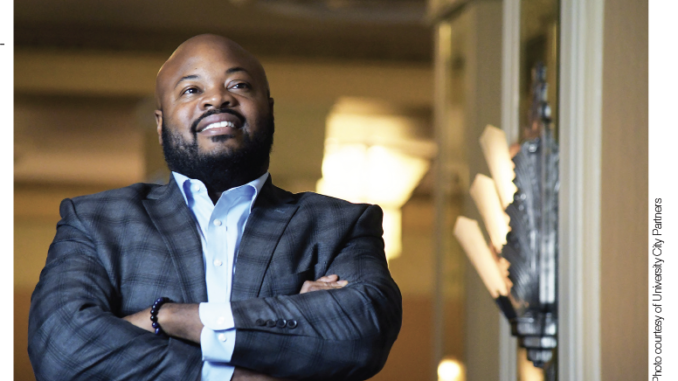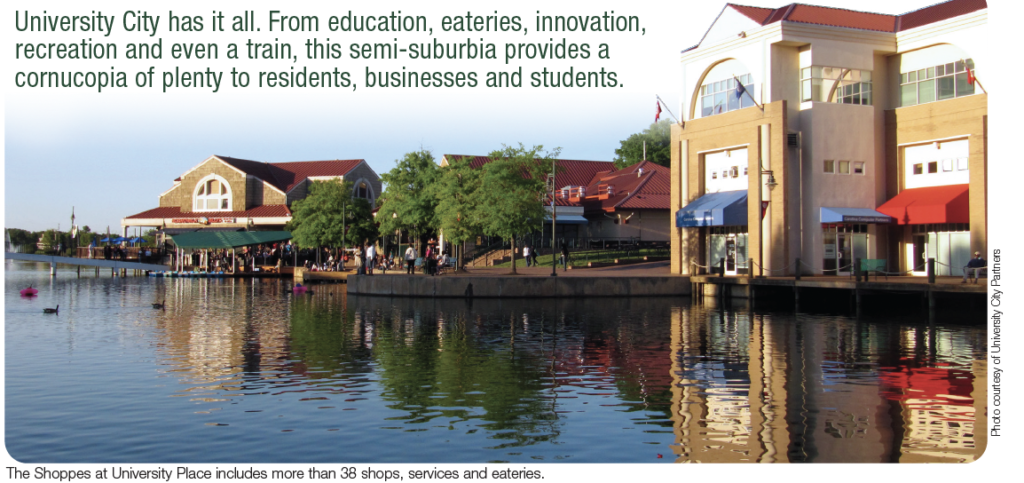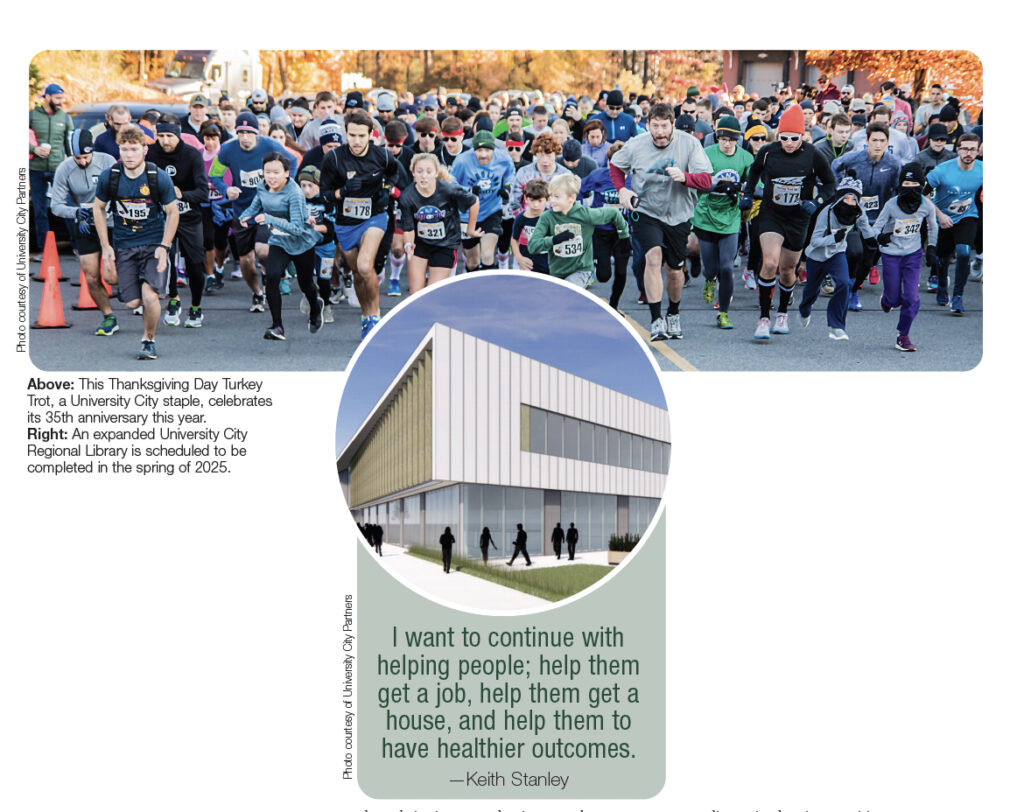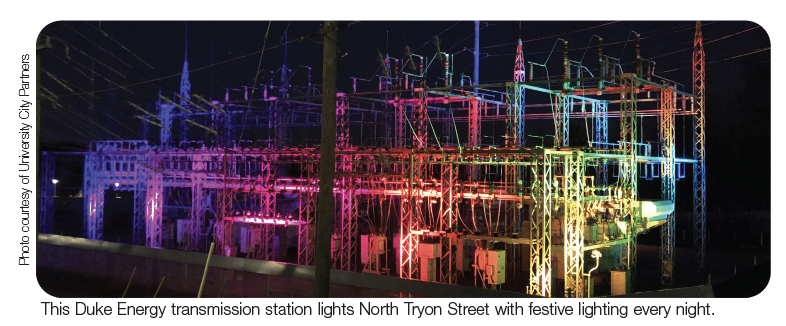
By John Burton Jr.
Coined as “The city within a city,” University City has it all. From education, eateries, innovation, recreation, and even a train, this semi-suburbia provides a cornucopia of plenty to residents, businesses, and students.
—
This bustling area has vastly transformed since its humble beginnings in 1904 when The Mecklenburg County Poor House operated at the interchange of what is now North Tryon Street and W.T. Harris Boulevard.
The University of North Carolina at Charlotte, formerly known as Charlotte College, was established in 1946 and is the fastest-growing school in the state’s college system. Over 80,000 people are employed by neighboring companies such as Atrium Health, Wells Fargo, TIAA, IBM and Electrolux.
With an average ridership of 25,000, the Lynx Blue Line is one of the city’s busiest light rail trains with service to NoDa, South End and Uptown. University City Regional Library is the second busiest public library in Mecklenburg County, which is expanding to a new $39 million two-story building in spring 2025. If you’d like to take a leisurely stroll, there are 14 miles of the greenway to do so. Again, the area has got it all.
University City is approximately a 3-mile radius from the interchange of North Tryon and W.T. Harris. Whether you drive it or walk it, anyone can witness the intentionality of strategic growth occurring in the area.
One of the major contributors to this burgeoning work is University City Partners. The nonprofit organization’s mission is to invest resources to shape public spaces and plans for a better-built environment that influences the way people in University City live, learn, work and play in the area. To do so, University City Partners concentrates on four key areas: planning and development, economic development, and marketing and communications. Many of the area’s successes can be contributed to their involvement.
At the helm of University City Partners’ work is executive director Keith Stanley. Starting his role in January 2023, the Milwaukee native has 15 years of community and economic development experience. Under Stanley’s guidance, the organization will continue to build the University City brand, increasing community engagement efforts, and supporting small business and entrepreneurial opportunities in University City.
“It’s exciting to start fresh and make new connections here in my new hometown,” Stanley said. “I’m really excited about making those connections and, specifically, about bringing more business and entrepreneurial opportunities to our Black, indigenous, and people of color community members. I have already met so many great people,” he added.
Stanley’s primary responsibility will be implementing the overall Strategic Vision Plan released in 2021. Called “Connecting: People / Places / Nature,” the plan follows a road map to University City’s next 20 years of development.
As the second largest employment center in the city, University City is a significant driver of Charlotte’s economy. University City Partner’s vision plan is built on the foundation of four themes: an urban north-south axis focused on transit-oriented development, an East-West Greenbelt for mobility and recreation, building character and culture, and providing 21st-century mobility.
“In the city of Milwaukee, I worked with some of the Fortune 500 and Fortune 400 companies and improved the lives in those communities. That is what I hope to do in Charlotte,” Stanley said.
Stanley, an alumnus of Alabama State University, describes his leadership style as disruptive but in a positive manner. Admittedly not a status quo individual, Stanley shared, “I’m going to be as genuine as possible, creative as possible but I’m a disruptor.”
He added, “I want to connect with the people which means everyone, the small business owner, elected officials and residents, and figure out how we can help improve this slice of the city of Charlotte.”
If you think you have seen the best the University area has to offer, stay tuned. Better walkability, a bigger library, more bike lanes, a bounty of new businesses, and improved infrastructure are all on the horizon for the University City vicinity.
In Charlotte, “I want to continue with helping people; help them get a job, help them get a house, and help them to have healthier outcomes. (That’s) the legacy I hope to live every day,” Stanley said.



